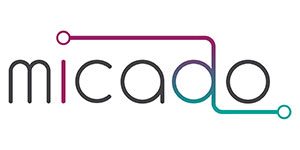
In “MICADO: Migrant Integration Cockpits and Dashboards”, experts from public administration, migration research, and IT create an EU-wide applicable business intelligence solution in support of migrant arrival and participation processes, and pilot it in Antwerp, Bologna, Hamburg, and Madrid. The solution leverages existing and new data to design attractive digital services for three user groups: 1) public authorities for labour, health, education and housing, 2) engaged civic society, and 3) migrants and refugees. Added value is generated by a) delivery of customized information and services via user-centric interfaces (dashboards, cockpits); b) gathering of data consensually provided by migrants and helpers in their cockpits; c) creation of strategic operational knowledge through data analysis and visualisation; and d) direct communication and data exchange between involved stakeholders and institutions. Key technical elements are chatbot language interfaces and automatic translation services for the migrants’ cockpit, which facilitate access to integration services, communication with authorities, and data acquisition.
Besides the technical solution, MICADO will create a universal service package, e.g. location and activity mapping, personal profiling, or matchmaking for mentors, jobs, education, etc. These will all be defined in an extensive demand analysis and co-creation process with local communities and institutions. In co-design sessions user groups will define the technical demands and requirements for technical design and development. The resulting MICADO solution will monitor pilot implementations in the four cities within the communities and institutions, results of which are fed back into final iterations of technical development of the project partners. In the final phase, co-development activities with local communities and institutions ensures uptake and local adaptation of the MICADO solution, and initiate context-specific modifications. This project has received funding from the European Union’s H2020 Innovation Action under Grant Agreement No 822717.

NADINE aims to harness the potential of big data and artificial intelligence to better understand the supply and demand of skills brought to Europe through migration. NADINE recognises that smooth access to employment is a key ingredient in successful inclusion in a new country, though the challenges and realities of migrants are not always fully understood by local host authorities and other actors in the labour market. Therefore NADINE’s cutting edge technology will assess migrants’ skills, along with their social, educational and cultural needs, and offer a range of user-friendly support services (including skills assessment, e-portfolio, game based learning, chatbot etc). Host authorities and guidance organisations will also benefit from data and technology that give a broader picture of skills supply. This will enable them to identify gaps in their provisions and adapt to the actual needs of migrants and employers in terms of upskilling, training and preparation for the labour market.
The project brings together a consortium of 13 organisations from France, Italy, UK, Greece , Belgium and Luxembourg, led by Script&Go (France). NADINE is a three-year innovation project and started in November 2018. This project has received funding from the European Union’s Horizon 2020 Research and Innovation Programme under Grant Agreement No. 822601.

REBUILD main objective is to improve migrants and refugees integration processes in Europe through the development of ICT-based solutions, aiming at enhancing the efficiency level in local authorities’ service provision and the immigrants’ quality of life. Actually, the starting point is the awareness about the gap between the supply of public services and the actual possibility of accessing them for immigrants and refugees.
This objective will be achieved through the realization of an application that may be used by immigrants and refugees to assure a better interaction among them and with public administrations and a more effective matching between the immigrants’ needs and the supply of services in the hosting countries.
This project has received funding from the European Union’s Horizon 2020 research and innovation programme under grant agreement No 822215.


